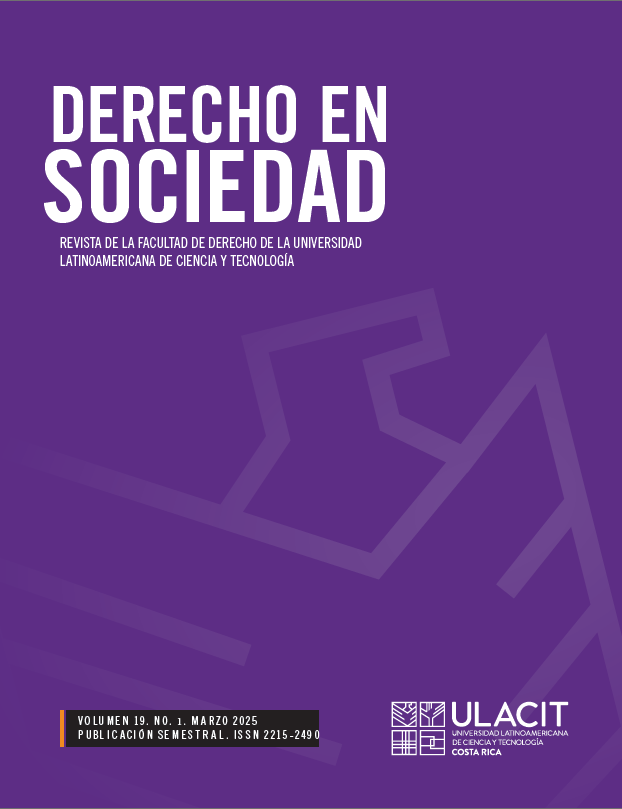
Publicado 2025-03-31
Palabras clave
- Fintech ,
- banks ,
- Netherlands ,
- CBDC ,
- digital technologies
- financial services ,
- competition ...Más
Cómo citar
Derechos de autor 2025 Derecho en Sociedad

Esta obra está bajo una licencia internacional Creative Commons Atribución-NoComercial-CompartirIgual 4.0.
Descargas
Altmetrics
Resumen
Fintechs in the Netherlands appear unable to compete on fundamental grounds with major banks such as ABN AMRO, ING Bank and Rabobank. By means of interviews with representatives of fintechs, policymakers, supervisors and academics, research was conducted into the extent to which the predicted fintech revolution has failed, which obstacles fintechs experience and whether the introduction of a CBDC can stimulate the fintech revolution. Banks may not have been outcompeted by fintechs, but financial services have indeed been fundamentally changed by the application of digital technologies. Fintechs appear to face five obstacles in their competition with large banks. Depending on design choices, the introduction of a CBDC could reduce the dependency relationship of fintechs on banks and promote diversity in the monetary-financial system.
Referencias
- Alkaya, M. (2018, December 12). Initiative note by member Alkaya: 100% safe saving and paying. Retrieved from Tweedekamer.nl: https://www.tweedekamer.nl/kamerstuks/detail?id=2018Z23562&did=2018D59390
- Banks. (2019, November 20). ABN AMRO doubles fund for investments in fintech . Retrieved from Banken.nl: https://www.banken.nl/nieuws/22028/abn-amro-verdubbelt-fonds-voor-investeringen-in-fintech
- Banks. (2019, November 28). ING most active European investor in fintech in 2019. Retrieved from Banken: https://www.banken.nl/nieuws/22048/ing-meest-actieve-europese-investeerder-in-fintech-in-2019
- Boyd, J. H., & Gertler, M. (1995). Are banks dead? Or are the reports greatly exaggerated? Cambridge, MA: National Bureau of Economic Research.
- Buitink, P., & Van der Linde, R. (2019, January 17). The economist in charge of bank accounts without credit risk. ESB new money , pp. 21-23.
- Business Insider, N. (2020, April 21). De Nederlandsche Bank wants to offer a digital payment account as a 'pioneer' - and thus also offer an alternative to initiatives such as Facebook's Libra. Retrieved from Business Insider: https://www.businessinsider.nl/dnb-payment account-centrale-bank-digitaal-geld-cryptomunten/
- DNB. (2020). Digital central bank currency: objectives, preconditions and design choices. Amsterdam: De Nederlandsche Bank nv
- Dormaar, F. (2019, January 9). Banks compete for your child: young inside is often a customer for life . Retrieved from RTL Nieuws: https://www.rtlnieuws.nl/economie/life/artikel/4544831/banken-concurrentie-kinderen-betaalrekening
- Hernaes, C. (2017, September 11). hernaes.com . Retrieved from Banking is necessary, banks are not: https://hernaes.com/2017/09/11/banking-is-necessary-banks-are-not/
- McMillan, J. (2014). The End of banking; money, credit, and the digital revolution. Zurich: Zero/One economics GMBH.
- Rabobank. (n.d.). FinTech & Rabobank . Retrieved from Rabobank: https://www.rabobank.com/nl/about-rabobank/innovation/money2020/rabobank-and-fintech.html
- Sanders, M., & Zhang, L. (2018, October 11). Diversity in the financial sector is of great importance. ESB review , pp. 20-24.
- SparePencil. (nd). What is the history of iDEAL? Who invented it and more… . Retrieved from SparePencil: https://sparepencil.com/wat-is-de-geschiedenis-van-ideal-wie-heeft-het -thought-of-and-more/
- Stichele, vd (2016). A structural problem in the shadows: the lobbying of Dutch banks at the Ministry of Finance. Amsterdam: SOMO.
- House of Representatives, d. S. (2020, June 30). Motions submitted during the policy document consultation on the Future of the monetary system . Retrieved from House of Representatives of the States General: https://www.tweedekamer.nl/kamerstukken/stemmingsuitslagen/detail?id=2020P10483
- WRR. (2019). Money and Debt, the public role of banks. The Hague: Scientific Council for Government Policy.

